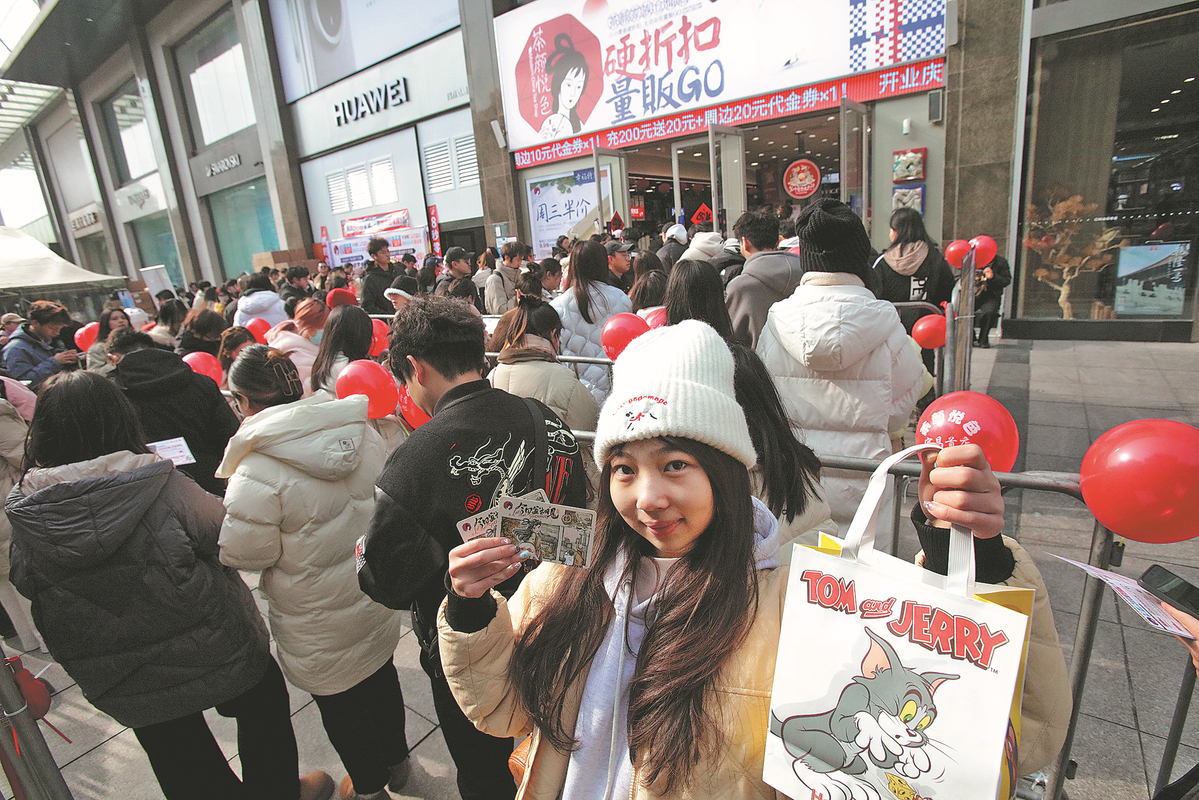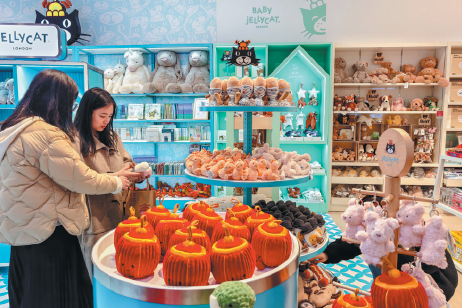Debut economy critical tool to enhance competitive edge


From the first restaurant that required customers to pedal bicycles to generate electricity, to the first cup of bubble tea delivered by drones — and the first exhibition viewed through virtual reality headsets — China's "debut economy" is pushing the boundaries of the consumer experience, analysts said.
The thirst for novelty and the desire to be the first to try the latest have become powerful drivers of consumption, particularly among the younger generation.
Brands that can tap into this sentiment and deliver a true sense of excitement and exclusivity will reap significant rewards, they added.
The debut economy is a new concept put forward during the country's tone-setting Central Economic Work Conference in December. It is a catchall phrase to describe companies launching new products, introducing new business models, services and technologies, and opening flagship stores.
The debut economy has become a critical tool for cities across China to enhance their competitive edge. As early as 2018, Shanghai pioneered the concept of the first-store economy, which has since evolved into the broader debut economy, said Zhu Keli, founding director of the China Institute of New Economy.
In the first 11 months of 2024, Shanghai added 1,173 new first-to-market stores. Not to be outdone, Beijing saw over 900 first-store openings throughout last year, while Guangzhou in Guangdong province welcomed 260 first-store openings in the first three quarters.
High above the streets of Hangzhou's Yuhang district in Zhejiang province, a hum fills the air as a drone descends, carrying a hot cup of bubble tea. The drone deftly delivered the bubble tea made 20 kilometers away to an automated pickup locker in Xiaogucheng Village in just over 20 minutes.
"I was craving bubble tea this afternoon and heard about the drone delivery service here," Sun Changshun, a 31-year-old resident, said. "I placed the order on the platform, and before I knew it, the tea had arrived right at my doorstep, with a delivery fee of only 8 yuan. It was a truly novel experience."
The delivery route, stretching from Wanda Plaza to Xiaogucheng Village, is part of a new low-altitude logistics network launched by drone maker Antwork Technology in November, providing a glimpse into the future of last-mile delivery.
By being the first to offer such a unique and technologically advanced solution, the company is not only meeting consumer demand for convenience and speed, but also tapping into the growing appetite for novel, cutting-edge experiences, said Liu Feng, operation manager of Antwork Technology.
At the seventh China International Import Expo in November in Shanghai, over 400 new products, technologies and services made their debut, emerging as a critical highlight of the event.
In China's rapidly evolving consumer market, marked by a constant stream of new products and technologies, the key to success is not just the sheer volume of offerings, but rather the level of personalization, sophistication and relevance that companies can bring to the table, said Victor Leal Negre, senior vice-president of Greater China Grooming at Procter & Gamble.
"Each year, we feel the evolving consumption demands of Chinese consumers, which translates into our product innovations, allowing us to serve consumers more effectively," Negre said.
In the fiercely competitive landscape of China's consumer market, capturing the attention of consumers has become a critical challenge for brands, said Dong Yu, executive vice-president of the China Institute for Development Planning at Tsinghua University.
With an abundance of choices and limited attention spans, companies are increasingly turning to new product or service launches to stand out, Dong said.
The launch of a first-to-market store, product or service doesn't just generate excitement and foot traffic on its own. It also has a ripple effect, attracting complementary businesses and driving increased consumer engagement in the surrounding area, Dong added.
That said, this attention does not automatically translate into lasting customer loyalty and engagement. Businesses and cities must adopt a more holistic, ecosystem-driven approach — one that goes beyond the single debut event and takes into account the entire product or service lifecycle, Dong said.




































